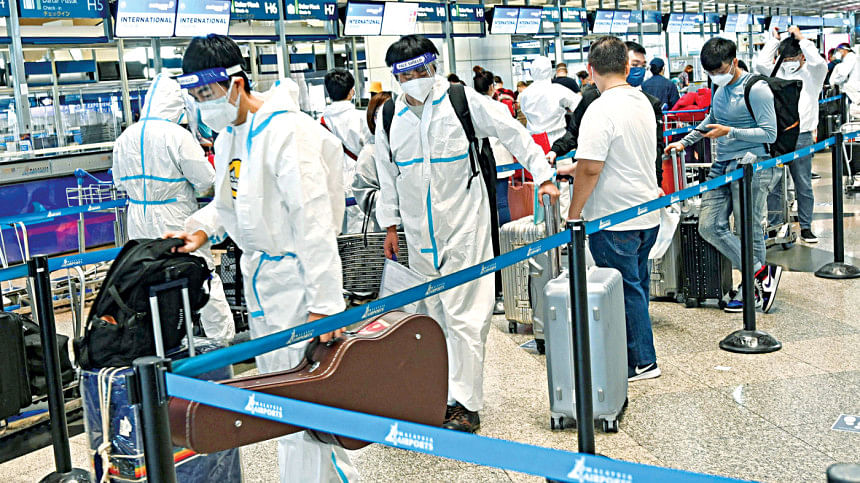Vaccine inequity made Omicron variant more likely

- Only 7.5pc of people in low-income countries received at least one dose of Covid vaccine
- 63.9pc of people in high-income countries received at least one shot
Many of the world's richest countries have spent the past year hoarding coronavirus vaccines, buying up enough doses to vaccinate their populations several times over and consistently failing to deliver on their promises to share doses with the developing world. The World Health Organization said the approach was "self-defeating" and "immoral."
It might be starting to bite. A new and potentially more transmissible variant of the virus likely emerged from a region with low vaccination rates.
The new variant, known as Omicron, was first identified in South Africa, although it is unclear whether it originated there or whether it was brought into the country from elsewhere in the region.
What scientists do know is that the virus is much more likely to mutate in places where vaccination is low and transmission high.
"It has probably emerged in another country and has been detected in South Africa, which has very, very good genomic sequencing capacity and capability ... it might well be a consequence of an outbreak, probably in some parts of sub-Saharan Africa, where there's not a huge amount of genomic surveillance going on and vaccination rate is low," Michael Head, a senior research fellow in global health at the University of Southampton, told CNN in a phone interview.
Head said the emergence of new variants was "a natural consequence of being too slow to vaccinate the world."
Scientists and public health experts and advocates have warned that the huge gap between vaccination rates in the developed and developing world is likely to blame.
Jeremy Farrar, the director of the Wellcome Trust, a health research charity, said the new variant shows why the world needs to ensure more equitable access to vaccines and other public health tools.
"New variants are a reminder, if we needed it, that the pandemic is far from over," he said on Twitter. "Inequity is what will extend the pandemic."
According to the World Health Organization (WHO), only 7.5% of people in low-income countries have received at least one dose of the coronavirus vaccine.
Across the eight countries most affected by the travel bans related to the Omicron variant, the proportion of populations that have had at least one vaccine dose ranges from 5.6% in Malawi to 37% in Botswana.
Meanwhile, 63.9% of people in high-income countries have received at least one shot, according to WHO.
In both the European Union and the United States, around 70% of people have received at least one shot, according to the European Centre for Disease Prevention and Control and the US Centers for Disease Control and Prevention.
While there are many reasons why a country might have a lower inoculation rate -- vaccine hesitancy remains a big problem in many countries, including South Africa -- Head said the lack of access to doses is a major problem.

 For all latest news, follow The Daily Star's Google News channel.
For all latest news, follow The Daily Star's Google News channel. 



Comments